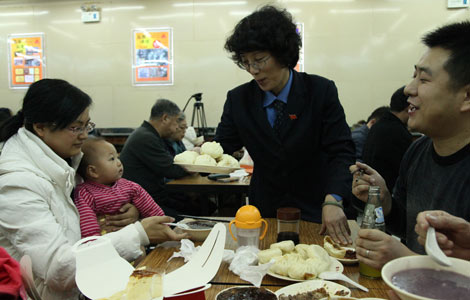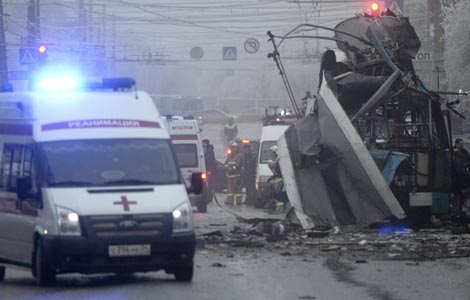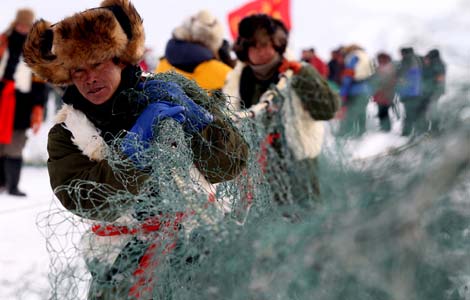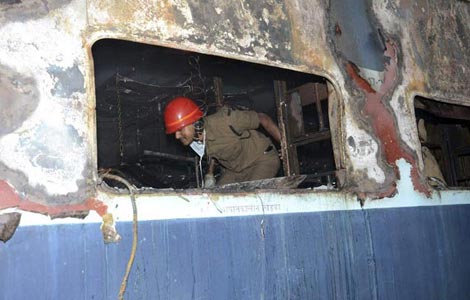NDRC: 'Negative list' to cut central govt role in investment
Updated: 2013-12-31 23:57
By Li Yang (China Daily)
|
||||||||
The National Development and Reform Commission, the country's economic planner, vowed on Tuesday to stick strictly with the State Council's directory of investment projects that require government approval.
The directory, known as the negative list, came into effect on Dec 2 and replaces the government's approval procedures for 19 investment areas.
It devolves the responsibility to approve 30 categories of investment items from central to local authorities, and it transfers approval for 10 kinds of investment projects to industrial administrations.
Compared with the previous version from 2004, the list attaches more significance to the market's decisive role in allocating resources, better recognizes the principal status of enterprises as investors and focuses more government attention on its duties as defender of public interest, the NDRC said.
The reform plan, drawn up during the Third Plenum of the 18th Communist Party of China Central Committee, states that enterprises should have full independence to make decisions within the legal framework, for which the government will not exercise evaluation and approval procedures, except for projects concerning national or ecological security, strategic resource development and public interest.
Analysts said the new list is conducive to stimulating initiative among enterprises and steering resources to the most worthwhile markets.
"The new national version of the negative list, which comes after the list for the Shanghai Free Trade Zone in November, is in line with the requirements to transform the role of the government, as well as economic restructuring," said Chen Fengying, a researcher of the macroeconomy with the China Institutions of Contemporary International Relations. "The list will change according to national economic developments."
However, the list involves the coordination of duties and interests of different levels of government, as well as the redistribution of labor among administrative departments for various industries, Luo Guosan, deputy director of the fixed assets investment division of the NDRC, said on Tuesday.
"One principle is to ensure the government plays its role as an effective and responsive macro-controller," he said. "The number of projects that need central government approval will drop by about 60 percent after the list comes into effect. The job will be done by local governments."
The government will enforce the pre-entry national standard as well as the negative list model for foreign investment projects, according to the NDRC.
Most standard foreign-bound investment from China will be recorded; only for investment projects in sensitive countries and regions, sensitive industries, or projects with an investment higher than $1 billion from Chinese investors will the government exercise its evaluation and approval rights, Luo said.
The negative list maintains the central government's approval rights over investment in some overcapacity industries, such as iron and steel, cement, electrolytic aluminum and shipbuilding, he added.
"This is to help the country digest its overcapacity as soon as possible," he said.
According to Luo, the NDRC is closely working with other ministries to simplify the application and approval procedures for many qualified industries not on the list.
"We're trying to shift the government's role from pre-investment examiners to responsible supervisors in and after investment, to better serve enterprises and the public interest," he said.
"The government should provide service, not interference."
Most Viewed
Editor's Picks

|

|

|

|

|

|
Today's Top News
US analysts think Abe's shrine visit a mistake
Xi's bun shop visit wows media
Global retirement crisis looms
US train collision sparks fire
Beijing turns cold shoulder to Japan
70 journalists killed on the job
Xi to direct carrying out of reform
Abbas committed to peace talks
US Weekly

|

|















